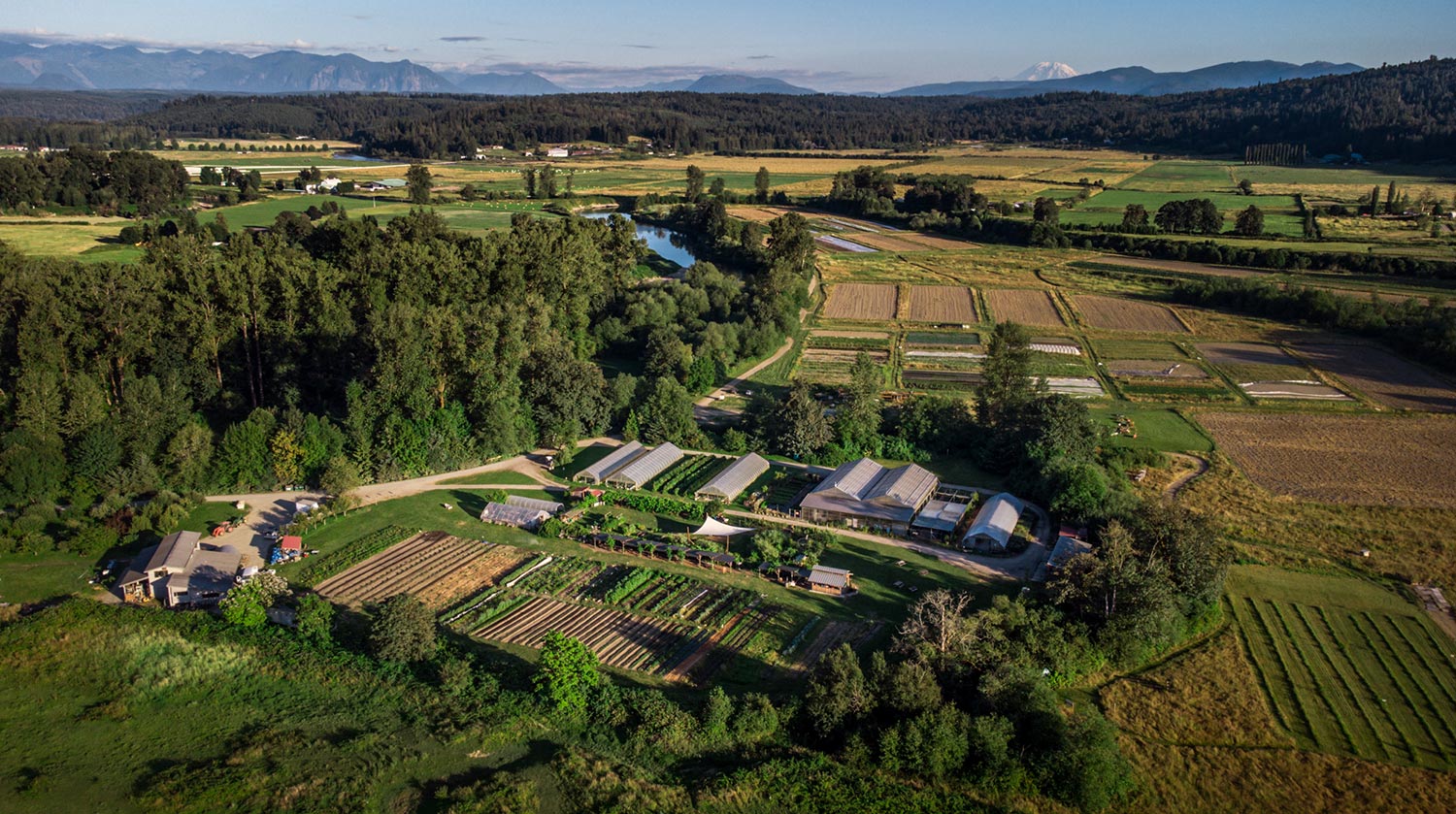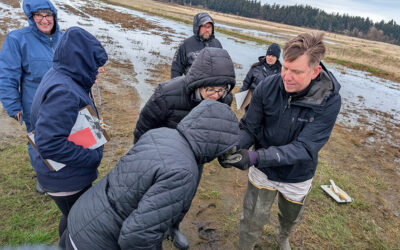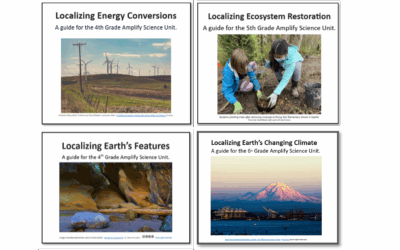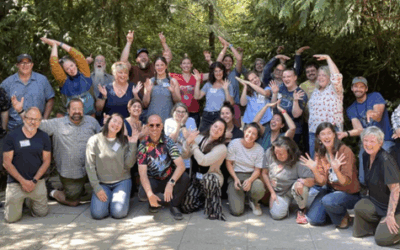During this two-month course, teachers learned about the impacts of climate change on snowpack in the Snohomish Valley, specifically the impact that Snohomish River flooding continues to have on nearby human and nonhuman communities.
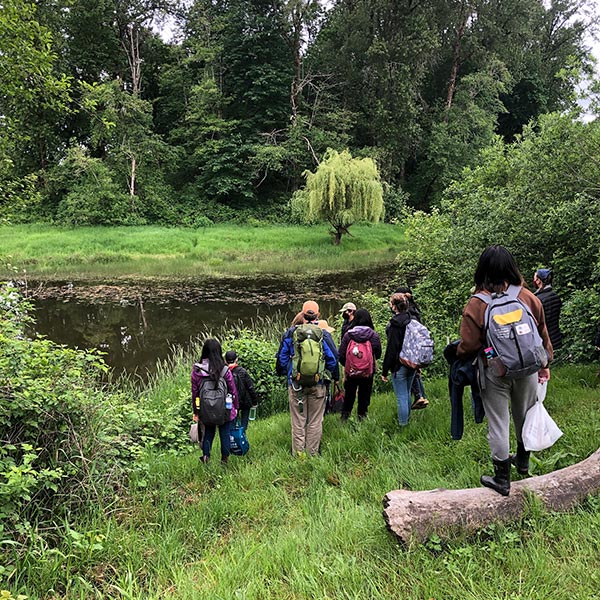
Students walking alongside the banks of Oxbow Lake, which is technically a part of the Snoqualmie River’s watercourse.
This is the second year IslandWood collaborates with the Oxbow Farm & Conservation Center Education Team to train teachers on how to document and reflect on flood impact on vegetation, animals, farm crops, and urban dwellings. The course content was rooted in demonstrating how to teach student-centered phenomena using a storyline – tracking and understanding river patterns – and implementing ‘Strategies toward Equity & Justice in Student-Centered Science Instruction” with their students.
The course especially explored the importance of centering community stakeholders as collaborators and the value of observing river patterns and seasonal changes across time to analyze and document the impact of climate change in the region. The goal was to engage Sixth through Eighth Grade teachers in ongoing analysis of student-collected observations and help them present climate change-centered data in the classroom. Teachers explored UW Climate Impact Group models for the region and learned new ways to use maps and graphs to lead rich discussions with students and create student connections to the data.
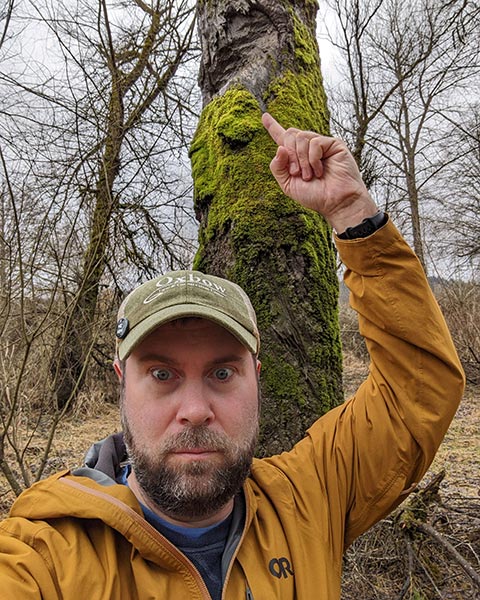
Reflecting on river rising patterns: Kent Chapple, Oxbow Farm Education Program Manager, shows teachers 10-foot-high beaver chew markings
During the training, Kent Chapple, Emma Pesis, and other Oxbow staff offered first-person context to the Snohomish River storyline, facilitated small group discussions, and led exciting onsite field investigations at Oxbow Farms. Their discussion about interspecies relationships and connection of river flow with vegetation and animals like beavers significantly enriched the teachers’ learning by providing place-based examples and offering the benefits and challenges of running a farm by a river.
Teachers learned how to center communities impacted by ongoing changes in surrounding water bodies by using writing activities such as “I am from” water poems, Snohomish river explanatory models, Beaver Behavior and Snoqualmie River Mind Maps, and Family / Elder interviews to document student observations, impressions, and elevate their community perspectives, including nonhuman activity. A wide range of activities, such as field investigations and community-centered action, were modeled to elicit student thinking, address place-based data analysis, and help students use evidence to develop authentic connections with water, land, and neighboring communities, including other species. Demonstrating the use of various mapping devices to track river patterns and consider the impact of rain and snowpack melting on landscape helped the students reflect on the value of data and further enriched their understanding of community action.
This cohort met together through Zoom six times through Winter quarter, completed optional implementation assignments between sessions, and had the opportunity to participate in onsite training and field investigation opportunities at Oxbow Farm & Conservation Center in Carnation, Washington.
For more information on when this course will be offered next, please click here.

